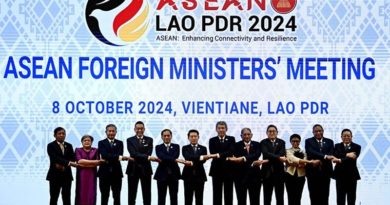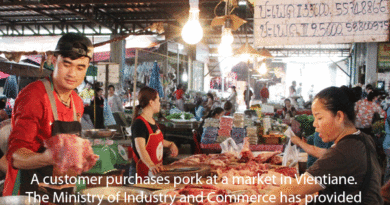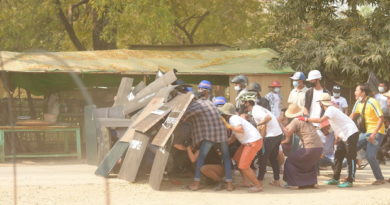OP-ED COLUMNISTS: OPINION ON PAGE ONE BY FRANCISCO TATAD – Did DU30 get outside help in the last polls?
AMID accusations of alleged Russian intervention in the 2016 US presidential election to put Donald Trump in the White House—accusations vehemently denied by both Russian President Vladimir Putin and Trump—comes this startling revelation that Cambridge Analytica, a British political consulting firm, had a hand not only in Trump’s but also in Philippine President Rodrigo Duterte’s election, six months before Trump’s.
Not even DU30’s fiercest critics have ever accused him of getting any extra-legal help from any source, least of all foreign, to win the election. The only person he ever thanked publicly “for making him President” during his inaugural was “former President Fidel V. Ramos,” whose support for him, however, may have since waned. But this latest breaking news changes everything.
The revelation is directly attributed to sources connected to Cambridge Analytica, its parent company website Strategic Communications Laboratories (SCL), and Facebook whose data belonging to 87 million of its 2.2 billion users were “improperly shared”with and “exploited by Cambridge Analytica to target them with individual messages.
Philippine data breached
The exploited data includes those belonging to FB users in the Philippines, Indonesia, United Kingdom, Mexico, Canada, India, Brazil, Vietnam, Australia, etc. FB chief operating officer Sheryl Sandberg recently told NBC Today that FB data is “not a paid product,” and FB users will have to pay a fee to have the complete privacy of their data protected.
FB chief technology officer Mike Schroepfer said in a post on April 4, 2018 that the data of about 1,175,850 Filipino FB users may have been improperly shared with Cambridge Analytica, which exploited it for its message-targeting in 2016.
How they did it
Two articles in Rappler by Natashya Gutierrez and Raissa Robles and one in the South China Morning Post give us an idea of how Cambridge Analytica did it. Using the improperly accessed FB data, Cambridge Analytica targeted the individual owners of those data with messages specifically tailored to their respective personalities.
It is by far the most subtle and sophisticated psychological manipulation of voters through social media.
Previous to this, the most notorious methods of manipulating elections were through the manufactured “push” polls, which falsified the perceived public standing of candidates, and the outright rigging of the voting to “confirm” (with the complicity of the mass media) the accuracy of the fraudulent opinion polls. For years and years this has been the principal characteristic of Philippine national elections.
SCL/Cambridge Analytica’s cutting-edge technology threatens to render all this obsolete.
SCL/Cambridge Analytica claims to have worked in 100 electoral campaigns in the US, Western Europe, India, Asia and Africa, with 100 percent success. In Southeast Asia, one former head of state—the late Abdurrahman Wahid, who was Indonesian president from October 1999 to July 2001, and one former head of government, Chuan Leekpai, who was Thailand’s prime minister from September 20, 1992 to May 19, 1995, and then from November 9,1997 to February 9, 2001—were once reported to have expressed appreciation for the help they got from SCL in managing their successful campaigns.
Cambridge CE0 in Manila
In May 2015, Cambridge Analytica’s CEO Alexander Nix came to Manila and spoke openly of his firm’s election-winning technology before “Meet the Press” at the National Press Club. On May 16, 2015 a Manila Times story written by Joel Sy Egco, the paper’s reporter and NPC president at the time, quoted Nix as saying: “While TV continues to dominate the campaign landscape, the most powerful way to win elections is to have the people themselves campaign for you. Instead of relying heavily on political surveys, campaign strategies must use those data to influence the behavior of the person.”
Nix spoke of “new strategies and tactics that are products of behavioral micro-targeting, psychographic profiling, predictive analytics and many other modern tools.” He predicted with extreme confidence that “in the future, government leaders will be chosen through text messaging, emails and social media.” Nix said he could get a fundamentally flawed candidate elected by maximizing his likeable traits.
“Even if you have just one staggering likeable trait, given the combination of strategies, you could win in an election against a very formidable opponent,” he was quoted as saying.
Egco, a talented journalist, who is now an undersecretary in the Office of the President, had no inkling Nix would end up helping the DU30 campaign. But he said Nix’s statement about text messaging electing a President left a very deep impression on him.
Nix was apparently not modest or discreet about his firm’s newly confirmed capabilities. Cambridge Analytica relieved him of his top post after recordings reportedly showed him bragging about his firm playing an expansive role in the Trump 2016 campaign, doing all of its research, analytics as well as digital and tv campaigns.
All the while, Trump’s political enemies were looking at Vladimir Putin and the Russians as the ones who allegedly intervened to make Trump president. In fact, the ongoing Mueller special investigations into the alleged Russian intervention have already cited 13 Russian nationals and three Russian companies for the alleged intervention, but have not come up with anything against Putin.
Rebranding DU30
Describing DU30 accurately without naming him, the SCL said on its website that“in the run-up to the national elections, the incumbent client was already perceived as both kind and honorable, qualities his campaign team thought were potentially election-winning. But SCL’s research showed that many groups within the electorate were more likely to be swayed by qualities such as toughness and decisiveness. SCL used the cross-cutting issue of crime to rebrand the client as a strong, no-nonsense man of action who would appeal to the true values of the voters.”
This post was eventually archived, but not before the South China Morning Post was able to record it for its readers. DU30’s “rebranding” as a tough-talking and foul-mouthed politician became the hallmark of his campaign and ultimately of his presidency. People who thought they knew him (this writer included) could not understand the sudden Kafkaesque metamorphosis of the man—from one who seemed to be appreciative of friends and allies to one who seemed to be perpetually in search of “enemies” to denounce and damn.
Attacking the Church
Without any provocation, he started attacking nameless priests and bishops for being carnal sinners like himself, and vowed to “destroy the Catholic Church,” which prompted this columnist to respond, “Can DU30 succeed where Satan has failed?” He started using vulgar and uncouth language and bragging about his sexual excesses in public speeches, to the delight of his supporters.
His propaganda fraudsters who manufactured opinion surveys for DU30 restrained themselves by not producing surveys showing popular support for obscenity and pornography as necessary qualities for high office; but they could very well have, and his supporters would have chorused in unison. DU30’s rebranding ushered in a period of moral derangement, from which the nation has not recovered.
Blasting the US, UN and allies
Elected with 38 percent of all the votes, he claimed victory by a “landslide” and the mass media echoed it. In truth, 38 percent is less than a majority vote. Then, again without provocation, he started attacking the United States, the nation’s oldest ally, by accusing it of genocide in its war against the Moros and early Filipinos in the 1900s. When then President Barack Obama, the US ambassador in Manila Philip Goldberg, UN Secretary General Ban Ki-moon and European leaders expressed some concern about human rights in connection with the reported killings in his “war on drugs,” he called them “sonofabitches” who had no business meddling in the “internal affairs” of his government.
His polemic against the US reached its highest point when he visited China in October of 2016, where he announced his economic and military “separation” from the US and his aligning with Russia and China “against the world.”
If the propaganda fraudsters are to be believed, this too was widely supported by people on the ground. So was his decision to set aside the ruling of the Permanent Court of Arbitration at The Hague confirming the Philippines’ sovereign rights over the disputed maritime areas in the Spratlys against China. In B. S. Aquino 3rd’s time, the same propaganda fraudsters reported strong support for Aquino’s warlike talk against China; now they claim the same strong support for DU30’s decision to let China do what it wants with our claim.
If the reports on Cambridge Analytica are correct, it would appear that DU30 has used the political “rebranding” formula not only to win the election but also to continue campaigning after the election. This is what he has been doing until now, he is still campaigning, instead of governing the nation, which he has not been able to do.
The bottom line
No one used the social media as extensively as DU30 did in the last elections. From midnight to 2 a.m. on November 25, 2015, after he declared his candidacy, according to one report, more than 30,000 tweets mentioning his name were posted on Facebook, sometimes reaching 700 tweets per minute—more than all the tweets about any of his rivals over the previous 29 days. But this extensive use of social media failed to say anything about the individual targeting of FB users as a result of Cambridge Analytica’s intervention.
This intervention appears to provide the most critical factor in explaining DU30’s surprising win. His army of trolls was an innovation, but without the “rebranding” which “deranged” the entire political environment, DU30 might not have made it to Malacañang.
I am inclined to believe that for good or ill, the SCL/Cambridge Analytica technology has changed the conduct of our elections forever, and that DU30 was way, way ahead of all his rivals in making use of it in 2016. It was a real coup. The only problem though is that the service was provided by a foreign supplier, who had no legal right whatsoever to participate in our elections. And it must have come at a great price, which was never reported as part of the expenses of the DU30 campaign.
In other words, this otherwise remarkable legal innovation was accessed in violation of our election laws. This violation now threatens the validity of DU30’s otherwise uncontested election.
Manila Times / ON /All photographs, news, editorials, opinions, information, data, others have been taken from the Internet ..aseanews.net | [email protected] | For comments, Email to : D’Equalizer | [email protected] | Contributor.










